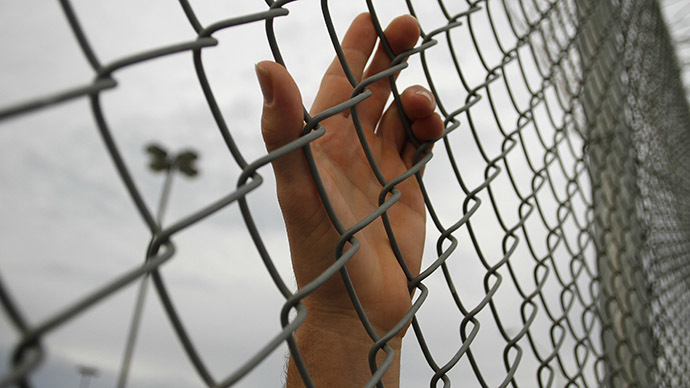Minors routinely abused in adult prisons – report

A new report has detailed the cruel treatment of minors who serve their sentences in adult prisons, from being forcibly extracted from their jail cells and restrained for days to being physically assaulted and tasered by correctional officers.
According to a new report by the Huffington Post, numerous videos and hundreds of documents have shown that the aforementioned actions are often performed in many correctional facilities. Not only are they raising fresh concerns over the way minors are treated behind bars, but they are also potentially leaving the young inmates traumatized far beyond their prison terms.
The gruesome account details the experiences of several young inmates in Michigan, including a 17-year-old female teenager, now 20, identified only as Jamie. She was originally sentenced to two concurrent six-month sentences for allegedly throwing a brick at a roommate and slamming it on the front door of their house in an attempt to get inside.
Despite being less than 18 years old, and despite the general thrust behind the juvenile justice system being that teenagers can be reformed and re-enter society as productive members, Jamie was assigned to the Women’s Huron Valley Correctional Facility in January 2012, where she joined inmates who, among other things, were convicted of first-degree murder.
While there, Jamie’s behavior became influenced by inmates much older, and with much more checkered pasts than her. Although her initial sentence was lighter because she was granted a special youthful status, she could not meet the standards necessary to have her record cleaned. Officials cited misconduct as the reason why, and she was later resentenced to up to five years in prison for her original crime.
Prison records later obtained by the Huffington Post, however, showed only that Jamie defied an order and gave a guard an “intimidating look.”
After receiving her new sentence, Jamie’s behavior grew worse. She yelled loudly and also tried to commit suicide. She was tied to a bed for almost 24 hours without a visit from a therapist. Another time, she was restrained for days.
At one point, officers in gas masks forcibly extracted her from her jail cell, restraining her to a bed and pushing a spit guard to her face. In a video recording, Jamie complained that she couldn’t breathe and repeatedly asks officers to leave her alone. After accidentally spitting on an officer, she was written up for misconduct.
READ MORE: Mentally ill inmates abused in 5,000 US detention centers – HRW
While prisons do train employees for cell extractions, correctional consultant Jeffrey Schwartz told Huffington Post they can be used by staff “because it’s an excuse to kick the crap out of inmates.” He called the extraction of Jamie “wrong and clearly dangerous,” particularly since she was choking.
The report also highlights that young prisoners are placed in situations where sexual assault can be rampant when they are housed with adult inmates, citing an inmate who said he was raped as a 19-year-old. Afraid that officers would make fun of him or reveal that he reported the incident to other inmates, the sexual attack went unreported.
These shocking incidents raise serious questions about the effectiveness of holding minors in adult prisons. One study by the Centers for Disease Control showed young individuals who suffered different types of trauma, including physical and sexual abuse, actually had their lifespans cut by 20 years compared to others.
Another one, reviewed by the CDC, showed that individuals who came out of the adult system “were 77 percent more likely to be arrested for a violent felony than those who were sent to juvenile institutions,” Huffington Post reported.
"The adult system is not designed in any way, shape or form to treat children, to rehabilitate children, or to recognize that children are different than adults,” said Amy Fettig, of the American Civil Liberties Union’s National Prison Project.












